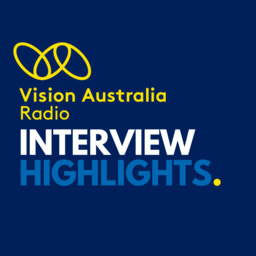Studio 1: Dale Pierce, 100K Your Way ambassador.
Looking for a way to feel good, get active and make a meaningful difference? Vision Australia’s 100K Your Way is back this April, offering the perfect opportunity to move your body and raise important funds to help support people living with blindness, low vision or print disability.
In this highlight, Sam and Lizzie (Studio 1) speak to 100K Your Way ambassador Dale Pierce to learn more about why he's chosen to join this year's challenge.
Support Dale Pierce in his 100K challenge by selecting this link
Join a Vision Australia Radio team here: Get moving for a cause: Vision Australia’s 100K Your Way returns this April! | Vision Australia Radio
In 1 playlist(s)
Interview Highlights from Vision Australia Radio
Vision Australia Radio Interview Highlights shares a range of discussions initially broadcasted on o…Social links
Follow podcast
Recent clips

Interview Highlight: Kelly Schulz - Knowable Me
14:53

Interview Highlight: Emily Shanahan
13:06

Interview Highlight: Mac Bollella - 2026 SA State Election
14:26
 Interview Highlights from Vision Australia Radio
Interview Highlights from Vision Australia Radio